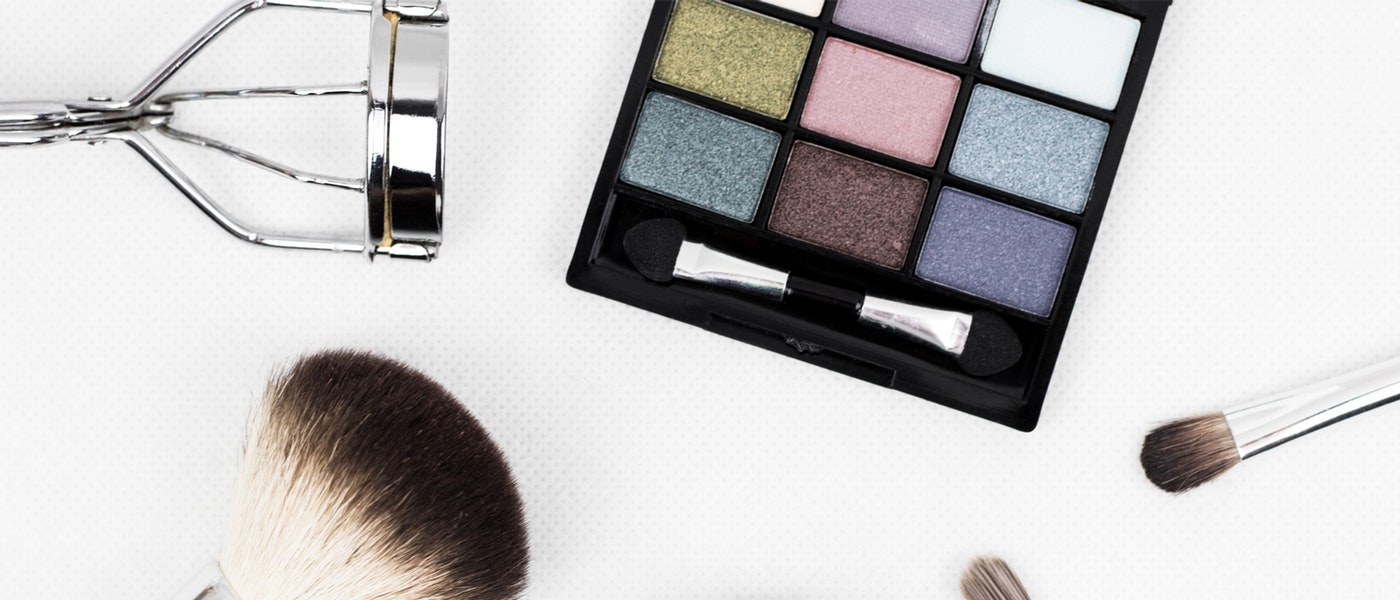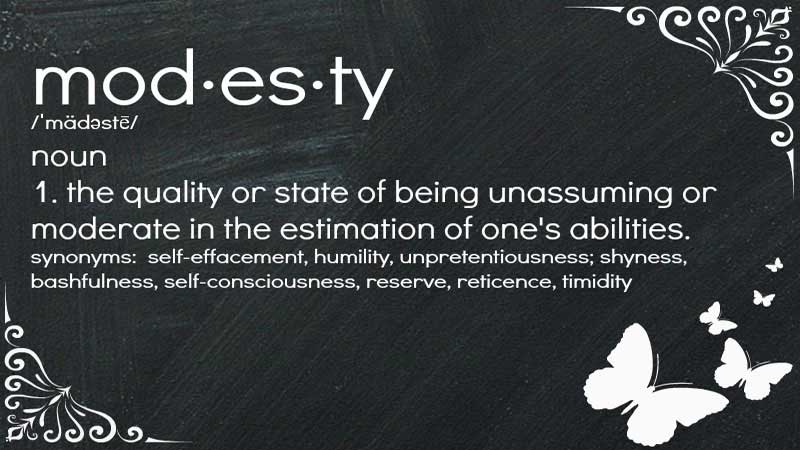

Is Wearing Makeup and Jewelry Allowed in Islam?
The way we look is usually considered as an expression of our character. That’s why it concerns us very much –maybe just a little too much these days. As a Muslim who tries to lead an Islamic life, it might pop into our heads if we are allowed to wear makeup in Islam, use jewelry, perfume, etc. or not.
This question concerns both men and women, naturally a bit more women though. Here, we would like to address the issue in a more general sense; what Islam says about wearing makeup in different situations. And to give a general preliminary answer, as our opening, yes, Islam allows us to wear makeup and jewelry as long as modesty is preserved.
But let us now have a more detailed look at some specific places where the question has been specially brought up and talked of in Islamic traditions:
Makeup in Islam
1. When Praying!
It might surprise you to find out that Islam particularly recommends us –though not as an obligation– to be in good shape, wear our best clothes, brush our teeth, wear perfume, and in short, to wear makeup when we stand to pray.
And so did Prophet Muhammad (PBUH) prepared himself for every prayer (Salat) since “God is beautiful and loves beauty,” [1] and conforming to this verse of the Quran:
“O Children of Adam! Put on your adornment on every occasion of prayer… Say, ‘Who has forbidden the adornment of Allah which He has brought forth for His servants, and the good things of [His] provision?’…” (7:31,32)
2. Wearing Makeup in Islam For One’s Spouse
Maybe this is where wearing makeup in Islam is most stressed on. Both men and women are time and again required to appear in the way that looks pleasantest to their better half, especially in their solitary moments.
It is considered a great merit for a woman to put on her make-up, wear jewelry and perfume to charm her husband [2], and as great a merit for a man always to look neat, well-groomed, perfumed, and dressed up in the way that gratifies his wife, even though it takes a little trouble, and even though it’s not the kind of outfit he likes best [3].
A man or a woman should never have the impression that their spouse is more concerned with how he or she looks to others than to them!
3. In the Public
Here, actually, Islamic Interpretations are varied. On the one hand, all Muslims are repeatedly recommended to look neat and groomed in public [4]. On the other hand, red lines have been drawn where an important Islamic principle is at risk: modesty.
Men are generally allowed to wear jewelry, such as rings or necklace (though necklaces are more commonly used by women in some Muslim countries), but they are forbidden from wearing any golden ornaments, maybe because Islam always wants there to be a certain line between men and women’s appearance, in the same way as Muslim men are required to wear a beard.
Women, too, are allowed to wear make-up, jewelry, or perfume in public as long as it doesn't make them appear sexually attractive. And of course, the bottom line for sexual attraction could be different from culture to culture. Several verses of the holy Quran ask women to keep a modest look in the public:
“… [tell the faithful women] not to display their charms, beyond what is [acceptably] visible… And let them not thump their feet to make known their hidden ornaments.” (24:31)
This verse mentions an example of immodesty at the time and culture of early Islam. But the rule applies to any kind of appearance or manner which is intended or is very likely, to provoke sexual interest in anybody other than one’s spouse.
Conclusion
According to what we said, therefore, Muslims are very much suggested to, so to say, wear makeup in Islam for praying and for one’s spouse. They are also advised to do so in the public sphere so far as one’s appearance is not in a way that could excite unlawful (Haram) sexual temptations.
References:
- Bihar al-Anwar, vol. 83, p. 169
- Al-Kafi, vol. 11, p. 165 , Al-Kafi, vol. 11, p. 168
- Makarim al-Akhlaq, p. 80
- Bihar al-Anwar, vol. 16, p. 249
Share This Article

Are Women in Islam Respected as Much as Men?
Contrary to popular belief, women in Islam has been empowered and respected. We previously discussed the Islamic viewpoint on the rights of women and the position of women in the society. Knowing that the justice considers equal rights for both men and women, it revealed that Islam had given “equal” -not similar- rights to women and men. Here, we provide more evidence on the Islamic approach to demonstrate that females are greatly respected in Islam.
Women in Islam and Love for Daughters
In the pre-Islamic era in Arab countries, females were considered as weak members of the society, and they were an economic burden especially during times of famine since they were supposed to be less useful. If a girl was born to a family, the father became disappointed (“And when one of them is informed of [the birth of] a female, his face becomes dark, and he suppresses grief.” (16:58)) and afraid of that girl being held captive by the invaders in the future, which would bring shame to the family. So, they used to bury baby girls alive (“Should he keep it in humiliation or bury it in the ground?” (16:59)).
Of course, Islam prohibited this practice by the divine commands in the Quran as well as the deeds and sayings of Prophet Muhammad (PBUH). The reaction of the Quran to this act is: “evil is what they decide” (16:59) and adds: “do not kill your children out of poverty; We will provide for you and them” (6:151).
This act is so blamed and hated in Islam that in Surah Takwir it is said on the Day of Judgement, the first issue that will be dealt with before everything else will be burying the baby girls alive: “For what sin she was killed” (81:9). This demonstrates how invaluable females are in Islam.
Islam also attempts to show the position of the daughter in the family and how she brings blessings to it. In this regard, Prophet Muhammad (PBUH) has said: “God bless the father who has daughters. Daughters are lovely and bring divine blessing, and sons are like good news. Daughters are enduring good deeds (Baqiyat al-Salihat)” [1].
He (PBUH&HP) wondered why people were unhappy and sorry for having a daughter and said that daughters are like fragrant flowers for him to smell [2]. Imam Sadiq (AS) said that: “Daughters are your good deeds and sons are your blessings. You will be asked for the blessings you have been given, but you will be only rewarded for your good deeds” [3].
This narration emphasizes how important female children and women in Islam are and warns us to treat them well. Prophet Muhammad (PBUH) has advised buying gifts for the family members and said that this act would be rewarded similar to giving charities. Then, he (PBUH) adds: “Firstly give your daughters their gifts, and then your sons. Because whoever makes her daughter happy is similar to the one who has set one of the children of Ishmael free (AS)” [4].
Islam Respects the Wives
The respect and importance given to daughters are also pointed out about women in Islam and especially wives such that according to Prophet Muhammad (PBUH&HP) the best of men is the one who is the best to his wife. And, he (PBUH) is the best man who other men should follow in act and behavior towards their wives [5].
Another manifestation of the respect for the wives is the Islamic point of view on polygamy. Islam does not approve of polygamy; rather it has restricted polygamy by setting some terms and conditions on that matter.
Islamic Advice on Respect for Mothers
Mothers are of high value in Islam because of their efforts such as how they withstand the difficulties during the pregnancy, the care and protection they provide after giving birth to the baby, the selfless sacrifices they make so that the child could grow up in the most comfortable condition and with the best education.
The rights of mothers are even known to be superior to those of fathers [9]. According to Prophet Muhammad (PBUH&HP), one can never pay back the rights of the mother [6].
Last word …
This amount of concern about females from childhood to motherhood and the considerations for the equal rights for women in Islamic teachings all the indicate the respect and attention paid to women in this religion.
References:
- M. Nuri, "Mustadrak al-Wasa'il", vol. 15, p. 115, T. 17700.
- "Makarim al-Akhlaq Supplication", p. 219.
- Shaykh Al-Kulayni, “Al-Kafi”, vol. 6, p. 6.
- Shaykh Al-Amili, "Wasa'il al-Shi'a", vol. 15, p. 227.
- Shaykh al-Saduq, "Man la yahduruhu al-Faqih", vol. 3, p. 443.
- H. T. Nuri Ṭabarsi, “Mustadrak al-Wasail”, vol. 15, p. 203.
Read More

Hijab in Islam : the Real Meaning
When talking about Hijab in Islam , the first impression that comes to mind is a cloth covering certain parts of women’s body. But is this the real meaning of the Hijab? Is that all Islam intended by ordering to wear Hijab; covering women’s bodies? This is surely one of the functions but is not the whole thing.
Hijab in Islam concerns men as much as women. Indeed, by introducing Hijab, Islam aims to set out a framework on how we dress, how we look, and how we interact in society. This also originates from a superior objective: limiting the human desires towards the opposite gender to one’s private life in the form of a legal marriage and letting the society focus on work and productivity [1].

The Islamic Dress Codes
Islam requires both women and men to dress simply, modestly, and with dignity. Simply said, one should not dress in a way to draw the attention of the others to their physical features. Islam has forbidden wearing the clothing that attracts the attention of the general public, making its wearer known for it because of the type of the fabric, its color, model or because of being worn and unclean [1]; and this applies to women and men both.
According to the Holy Quran, covering and Hijab of body dates back to the time of Adam and Eve in the Garden of Eden: “So when they tasted of the tree, their nakedness became exposed to them, and they began to stitch over themselves with the leaves of paradise.” (7:22). This demonstrates that following the standards of modesty is innate in all human beings, and so do the Islamic dress codes.
Since modesty as the reason to wear the Hijab in Islam is a subjective term, the Quran and Sunnah [i] have laid out the bare minimum to prevent any confusion. The absolute minimum covering in Islam set for men is loose and unrevealing clothing from his navel to his knee [1]. Men are not allowed to wear gold jewelry, silk clothing, or adornments that are considered feminine [1].
Muslim women, like men, are not permitted to wear tight and revealing clothing; especially the ones showing the details of their body. The clothing should cover their hair and body, but covering the face and the hands, from the wrist to the fingers, is not mandated [2]. It is also forbidden for women to wear strong perfume, heavy make-up, or such jewelry that makes a jingle noise with movement and attracts the attention of others, especially strange men. They should not reveal their ornament either. These all let the Muslim women to be recognized in society by the content of their character rather than by their physical appearance and do force men to cease objectifying women.
It should be noted that besides these dress codes, Islam has mandated us to wear beautiful and clean clothes; especially when dealing with others and during prayers: “O Children of Adam! Put on your adornment on every occasion of prayer” (7:31). This also should be considered as much as the clothing rules.
Controlling the Glance as A Part of Hijab in Islam
Islamic precept has introduced a particular way of decency by presenting the concept of controlling the gaze. It is stated in the Quran that: “Tell the faithful men to cast down their looks” (24:30); and: “And tell the faithful women to cast down their looks” (24:31). It means that women and men are both required to keep their gazes downcast unless permitted [ii].
Imam Sadiq (AS) said: “A glance is a poisoned arrow from the arrows of Satan. He who refrains from it [glancing] for the sake of Allah and nothing other than Him, Allah will grant him a faith, the taste of which he will experience.” [3].
Keeping the glance downcast prevents men from lustful thoughts when looking at any woman other than their wife and allows women to protect themselves and guard their modesty. If one truly believes that God is present everywhere and at every second, He sees all he does [iii], and “He knows the treachery of the eyes, and what the breasts hide.” (40:19), he controls his glance in public and in private.

Limits to Talking to the Opposite Gender
As society is composed of women and men, their social interactions and communications are inevitable. Emphasizing the concept of decency, Islam has special guidelines for the interactions between members of the opposite sex. Islam, as the religion of moderation [iv] [4], does not allow a free relation, neither severely restricts this interaction, but allows women and men to communicate in good intention [5]. This means that the speech should be direct and both sides should consider the human identity of the other person, not the gender.
Allah says in the Quran: “wives of the Prophet! You are not like other women: if you are wary [of Allah], do not be complaisant in your speech, lest he in whose heart is a sickness should aspire; speak honorable words.” (33:32).
Although this verse of the Quran addresses the wives of the Prophet Muhammad (PBUH&HP) who were mostly at the old age, it also applies to all other women especially young ones [6]. This requires Muslims, specifically women, to use a serious tone of voice and expression when talking to the opposite gender. Otherwise, their sweet words might seduce the person whose heart might be diseased with lust.
Notes:
[i] The lifestyle and sayings of Prophet Muhammad (PBUH)
[ii] e.g., in the case that a witness looks at the face of a non-mahram to recognize him/her.
[iii] “does he not know that Allah sees [him]?” (96:14)
[iv] “Thus We have made you a middle nation that you may be witnesses to the people” (2:143)
References:
- HIjab in Islam
- A. Aroussi Howayzi, "Tafsir Noor al-Thaqalayn", vol. 3/589, T. 105.
- M. B. Majlesi, "Bihar al-Anwar", vol. 101, p. 40.
- N. Makarem Shirazi, "Tafsir Nemooneh", vol. 1, p. 483.
- Hijab in Holy Quran
- M. Qara'ati, "Tafsir Surah al Ahzab."
Read More

